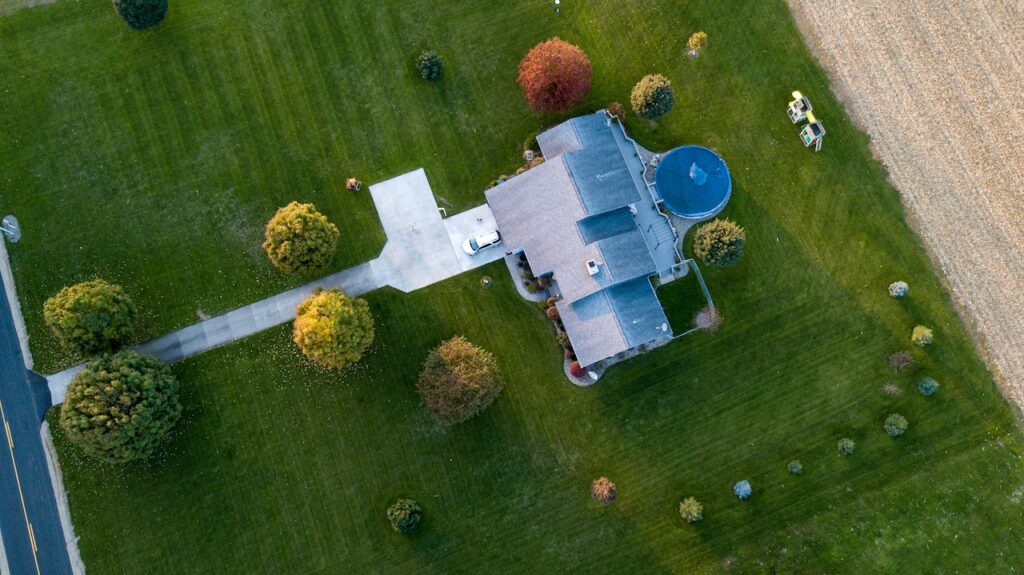When we think about lawn care, the immediate images that come to mind are lush green spaces and the joy of spending time outdoors. However, beyond the aesthetic appeal and recreational value, proper lawn care practices also offer a myriad of environmental benefits. In this article, we delve into the hidden ecological advantages of maintaining a healthy lawn and how responsible lawn care practices contribute to a sustainable environment.

Carbon Sink and Air Quality Improvement
A well-maintained lawn acts as a natural carbon sink, absorbing carbon dioxide from the atmosphere and reducing greenhouse gas emissions. Grasses and plants, through the process of photosynthesis, capture carbon dioxide and release oxygen, thus mitigating the effects of climate change. By nurturing healthy lawns, we play an active role in combating global warming and preserving air quality.
Soil Erosion Prevention
Lawns with robust root systems help prevent soil erosion. The roots of grasses anchor the soil, reducing the risk of sediment runoff into nearby water bodies. This helps to maintain water quality and preserve aquatic ecosystems. Additionally, the dense cover provided by a healthy lawn acts as a barrier against rainwater impact, reducing soil compaction and promoting water infiltration.
Water Management and Conservation
Proper lawn care practices contribute to effective water management. Regular mowing at the appropriate height helps shade the soil, minimizing water evaporation and reducing the need for excessive irrigation. Well-maintained lawns also act as a natural filter, capturing pollutants and preventing them from leaching into groundwater supplies. By adopting responsible watering habits and implementing water-wise strategies, we conserve one of our planet’s most precious resources.
Biodiversity and Habitat Creation
Lawn care can be more than just a monoculture of grass. By incorporating native plants, flowers, and shrubs into your lawn, you can create a diverse habitat that attracts beneficial insects, birds, and other wildlife. These additions provide food sources, shelter, and breeding grounds for local species, contributing to the preservation of biodiversity in your area. A vibrant ecosystem supports the pollination of plants, natural pest control, and overall ecological balance.
Noise Reduction and Heat Regulation
Lawns act as natural sound barriers, absorbing and deflecting noise, thus reducing noise pollution in urban environments. Additionally, green spaces help regulate temperature by cooling the surrounding area. Through a process called evapotranspiration, where plants release moisture into the air, lawns can mitigate the urban heat island effect, making cities more comfortable and energy-efficient.
Aesthetics and Psychological Well-being
While environmental benefits take center stage, the visual appeal of a well-cared-for lawn should not be overlooked. Green spaces have a calming effect on individuals, reducing stress and enhancing mental well-being. Access to outdoor recreational areas encourages physical activity and fosters a connection with nature. By nurturing our lawns, we create inviting environments that promote a healthier and happier community.
Proper lawn care practices extend far beyond mere aesthetics. By understanding the environmental benefits of maintaining a healthy lawn, we can make conscious choices to protect and enhance our surroundings. From combating climate change and conserving water to promoting biodiversity and improving air quality, responsible lawn care contributes to a sustainable future. Let us embrace the ecological advantages of our lawns and transform them into vibrant, environmentally friendly spaces that benefit both us and the planet we call home.
Comments